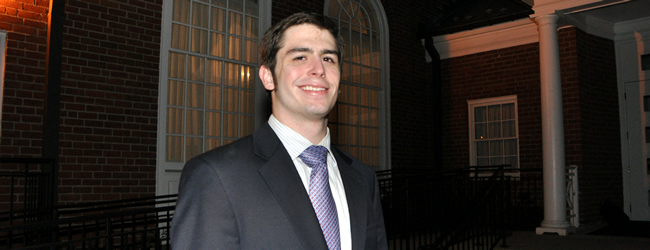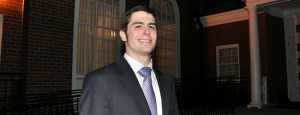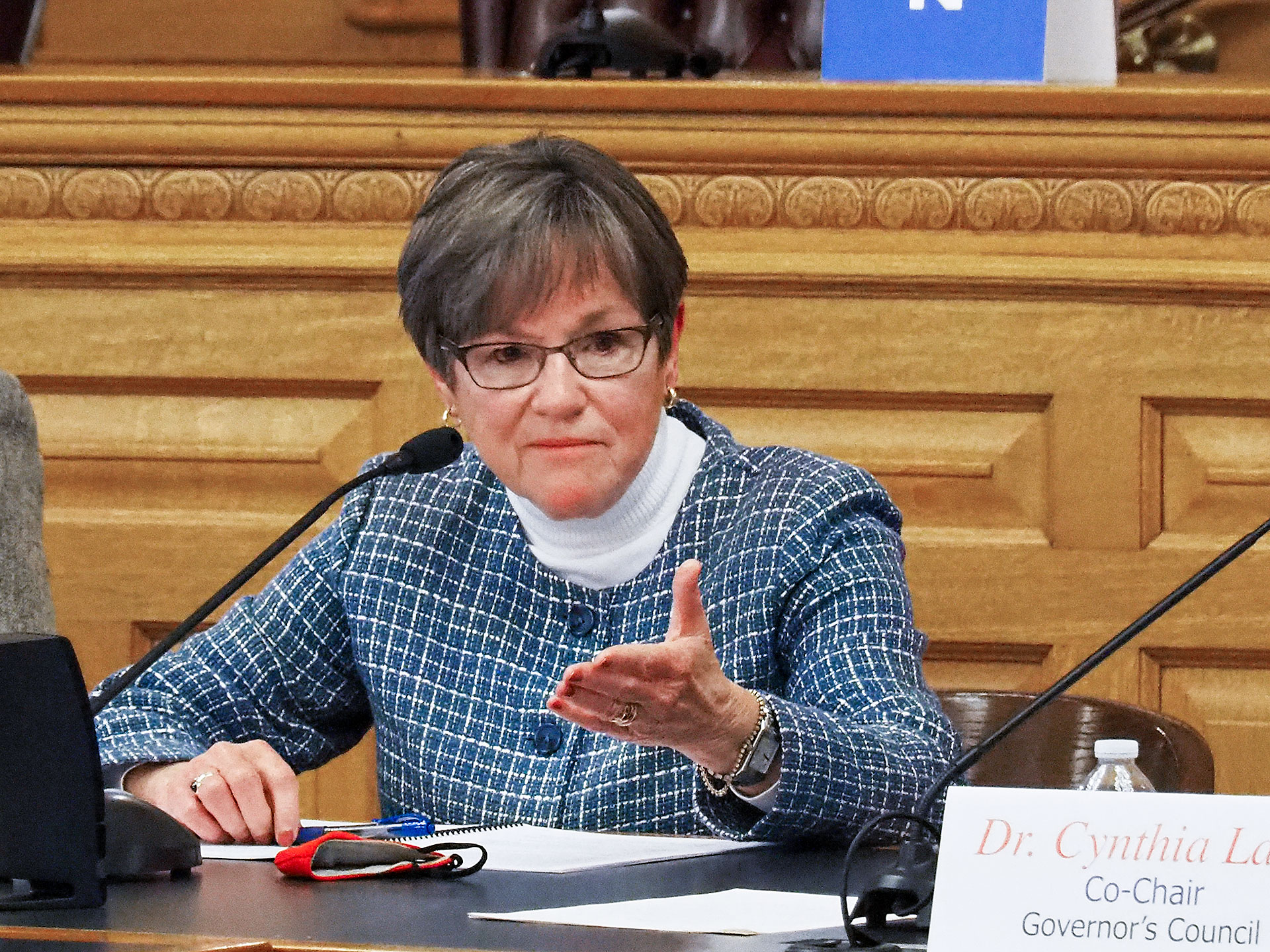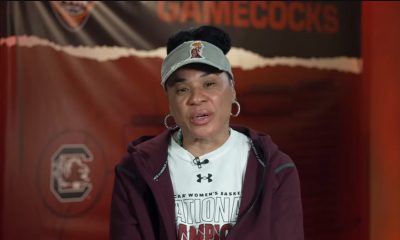National
Latter-day doubts?
Local LDS member recalls suicide attempt, but remains in Mormon church


‘I felt like I had to choose which half of me had to die,’ said David Baker, a local gay Mormon who attempted suicide in 2008. (Blade photo by Michael Key)
David Baker is living what he calls the “ultimate paradox.”
Like many 21-year-old gays in the D.C. area, Baker spent last Saturday at Town as he does many weekends. A drag show is taking place downstairs, but he and his friends went to the upper level to dance to the latest remixes.
“I started going clubbing shortly after I came out,” he said. “But I don’t go all that regularly — probably once a month.”
But on Sunday, the situation is different. After donning his best church clothes, the Salt Lake City native who now lives in Rockville, went to a Mormon church in D.C. for a three-hour block of weekly service.
Activities included hearing speakers from within and outside the congregation and scripture discussion. Baker, a University of Utah graduate, is also co-chair of the cultural events committee and helped work to plan social events with other church members.
Baker’s presence among his congregation is distinct because he’s openly gay in a religion known for its hostility to homosexuality and opposition to same-sex marriage. The Mormon Church earned scorn from many in the LGBT community in 2008 for taking a lead role in backing Proposition 8 in California, which ended same-sex marriage there.
“It’s the ultimate paradox,” Baker said. “It’s been a struggle not just in dealing with my sexuality, but in the reactions that I get from church members sometimes or the reactions that I get from the gay community.”
Even though he stands out for being gay, Baker said he’s able to mingle with other churchgoers and voice his opinion that he’s the same as any other Mormon despite his sexual orientation.
“Lots of people tune me out, but I try and approach it from a concept that we are all children of God, that we are sinners and we are all imperfect,” he said. “So to judge one sin as being worse than others, and my quote-unquote sin being worse than yours is absurd. And that seems to be a message that people understand.”
His path to personal acceptance hasn’t been easy. Baker once considered seeking out shock therapy to alter his sexual orientation as well as participation in Evergreen, the Mormon Church’s reparative therapy program. Such programs were long ago discredited and repudiated by medical professionals.
“I had come out to my family and a couple of friends and it wasn’t so much, ‘Oh, dang it, I’m gay,’ it was, “OK, I’m gay. I accept it. How does this comport with my faith?” he said. “So, I spent pretty much just every waking hour just poring over scripture, poring over words of prophets, poring over everything I could find on sexuality and religion.”
In 2008, Baker attempted to commit suicide by taking an overdose of pills. His roommate found him and took him to a local hospital for treatment.
“I felt like I had to choose which half of me had to die,” he said. “And I got to the point that I thought if half of me has to die, and I still won’t know the truth, why not just kill all of me and then I can finally know the truth?”
While undergoing treatment, Baker said a psychologist suggested to him there could be a distinction between the word of God and the guidance of the church. His roommate came to visit him and made the same observation in the exact same words.
“It sort of caught in my mind that maybe there’s a distinction between what God is saying and what the Prophets and the Apostles are saying,” he said. “Maybe these leaders of the church are Mormon and everything they say is not a direct fact from God, but instead tinged with their own personal beliefs, however flawed they might be.”
Baker is one of many other gay Mormons in the D.C. area who continue to practice their faith despite the religion’s position on homosexuality.
About 60 Mormons or former Mormons are affiliated with the D.C. chapter of Affirmation, a group for LGBT members of the Church of Jesus Christ of Latter-day Saints.
Fred Bowers, Affirmation’s D.C. chapter leader, said about one-third of those on his organization’s mailing list still identify as Mormons and participate in the Mormon church, although to varying degrees.
“Some people may go only to the church on Sunday and some may be more active with other things the church is doing through the week,” Bowers said. “And some may be there active, but they only participate in what they select, but there are a good number that actually do still attend church.”
Those who are Mormon and openly gay face challenges in adhering to their faith. For example, Mormons engaged in same-sex relationships aren’t permitted to attend special services, such as weddings, in Mormon temples. Those who are sexually active in opposite-sex relationships outside of wedlock or those who consume alcohol are similarly unable to attend.
But Bowers said many LGBT Mormons stick with their faith simply because they truly believe in the church’s teachings or because their families have a long history with the religion.
“They’ve grown up with this.” Bowers said. “Just like an Episcopalian or Catholic or what have you, we still believe that. It hasn’t changed just because we’re gay or lesbian. We still believe in that church and we still believe in the principles of it.”
That’s the situation for Baker, who said he still considers himself a Mormon because he believes in the Gospel as presented by the church and because “they have the most truth.”
“That being said, I don’t think that they have it all,” he said. “One of the core articles of faith of the church sort of says that blatantly. It says that we believe all that God has revealed isn’t all that he’ll reveal, and we believe that he’ll yet reveal many great important things. So it’s very much an ongoing, open canon.”
Still, Baker said he’s adapted Mormon dogma into his own views of his sexual orientation. He said he doesn’t plan to have sex until he finds another man to marry — similar to how many straight Mormons abstain from sex until after they receive their nuptials.
“For me, no sex before marriage means a legal marriage because the church does recognize legal marriages — the traditional kind naturally — that aren’t performed in the temple,” he said. “And so, in my mind, that same non-temple civil ceremony would be recognized by God.
‘Wickedness never was happiness’
The difficulty of being Mormon and openly gay became particularly pronounced last week when a high-ranking leader of the church made anti-gay remarks during the 180th semi-annual general conference in Salt Lake City.
Boyd K. Packer, president of the Quorom of Twelve Apostles, called same-sex attractions “impure and unnatural” and characterized efforts to advance same-sex marriage across the country as attempts to “legalize immorality.” Additionally, he suggested people can change their sexual orientation, which can be overcome through prayer.
“We must understand that any persuasion to enter into any relationship that is not in harmony with the principles of the Gospel must be wrong,” he said. “In the Book of Mormon, we learn that ‘wickedness never was happiness.’”
Packer, who as an apostle is supposed to be delivering words directly from God, made the remarks to a crowd of 20,000 people in attendance and millions more watching the sermon via satellite transmission in churches and homes throughout the world.
For many gay Mormons, the words stung. Baker said he “cringed” as he heard Packer’s remarks and left the room where he and others had been viewing the sermon. He then realized he had to watch the entire remarks so he could respond to them later.
“I went back and watched the whole thing, and as I was listening to his words, I just felt frustration and I was very upset by what he was saying because it went against where the church has gone for the last five or 10 years,” he said.
Bowers said the remarks were particularly unfortunate in the wake of recent suicides of gay teens who took their lives after they were bullied and harassed and were disruptive to the dialogue that Affirmation had been pursuing with lower-level Mormon leaders “to heal the damage that was done by Prop 8.”
“They’re working so hard to get some sense of support and everything that we’re working to do that, and then this statement comes along that’s not very helpful,” Bowers said.
Changes were made to the speech in an online version of the remarks published later in the week. Packer’s reference to inborn “tendencies” was switched “temptations.” A question of “Why would our Heavenly Father do that to anyone?” was removed entirely.
Baker said another noteworthy change was the sermon had been downgraded from the level of revelation to a less stringent guide that Mormon church members would do well to follow.
“Before in the mindset of members of the church, it’s been seen as revelation even though it’s never been explicitly said as such,” Baker said. “To have that downgraded from everyone thinking it’s revelation … to actually, no, it’s just a guide, is really big.”
Kim Farah, an LDS spokesperson, said speakers have the opportunity to make changes to clarify their intent on the Monday following every general conference and the changes made to Packer’s sermon were in line with this practice.
“President Packer has simply clarified his intent,” she said. “As we have said repeatedly, the Church’s position on marriage and family is clear and consistent. It is based on respect and love for all of God’s children.”
Even with the corrections, Packer’s sermon has invoked the ire of the Human Rights Campaign, which pounced on the Mormon leader’s remarks.
Joe Solmonese, HRC’s president, called the sermon “inaccurate” and “dangerous” and said it could lead to more LGBT suicides similar to those that took place in the last month.
“When a faith leader tells gay people that they are a mistake because God would never have made them that way and they don’t deserve love, it sends a very powerful message that violence and/or discrimination against LGBT people is acceptable,” Solmonese said. “It also emotionally devastates those who are LGBT or may be struggling with their sexual orientation or gender identity.”
HRC launched a petition campaign against Packer for his remarks following his sermon. On Tuesday, the organization delivered to Mormon Church headquarters a petition signed by 150,000 people asking the leader to correct his remarks further.
Fred Sainz, HRC’s vice president of communications, said the response to the initiative against Packer is the largest for any petition campaign in the organization’s history.
“I think it was the impact of Elder Packer’s words,” Sainz said. “Any one of those issues would have drawn significant scorn from members of the community and our fair-minded straight allies, but when you lump all of them into one sermon, and it comes from the second-highest ranking official of the Mormon Church, I think it rises to the level where people are going to pay attention and demand change.”
Sainz said HRC is seeking a further correction from the Mormon Church because Packer’s remarks were “factually and scientifically untrue.”
“They’re inaccurate,” he said. “And so, they owe the factual record a revision to reflect what is true.”
Michael Otterson, an LDS spokesperson, responded to HRC’s efforts by saying that while the church disagrees with the organization on many issues, they have some “common ground.” For example, Otterson said the church denounces the acts of bullying that led to numerous gay suicides in the past month.
“We join our voice with others in unreserved condemnation of acts of cruelty or attempts to belittle or mock any group or individual that is different — whether those differences arise from race, religion, mental challenges, social status, sexual orientation or for any other reason,” Otterson said. “Such actions simply have no place in our society.”
Otterson maintained the church believes any sexual activity outside of marriage is wrong and marriage should be exclusive to one man and woman. Still, he said these beliefs “should never, ever be used as justification for unkindness.”
“The church recognizes that those of its members who are attracted to others of the same sex experience deep emotional, social and physical feelings,” he continued. “The church distinguishes between feelings or inclinations on the one hand and behavior on the other. It’s not a sin to have feelings, only in yielding to temptation.”
HRC’s effort to draw attention to Packer’s remarks has earned mixed reviews among some gay Mormons. Bowers said HRC’s efforts at drawing attention to Packer’s remarks has been helpful in moving the church to talk about LGBT Mormons in a more positive way.
“This event was very helpful as they did release a statement,” Bowers said. “We’ll look forward to probably hopefully some more positive statements, such as the one they made about … no one should be bullied for anything. They were in agreement that everyone had a right to be in a safe space.”
But Baker was skeptical about the impact that the 150,000 signatures from outside groups like HRC would have on Mormon leadership because he doubted many of the names were from people within the church.
“I don’t think the HRC campaign is going to be that effective in affecting the church, but I definitely think it is proven effective in galvanizing a lot of people for their cause,” he said.
Baker also said the HRC campaign is energizing the core following of the church and noted new Facebook groups such as “I Love Boyd K. Packer” have emerged suggesting that the LGBT organization is bullying the church.
“I think that there’s going to be a bigger fallout of this from inside the church,” Baker said. “And from a member’s perspective, it’s going to be rally together all the other members and be like, ‘Look these people are attacking us. We’re being persecuted.’”
Sainz maintained HRC’s initiative is “not intended against Mormonism” and said millions of fair-minded Mormons “welcome LGBT people and want to encircle them in love and acceptance.”
“We don’t take exception to the Mormon religion,” Sainz said. “Our issue is with Elder Packer’s sermon and it’s with the Mormon Church hierarchy’s conduct on some of these issues. So that is an important distinction that we make.”
A change in the membership core?
As the public campaign between Packer and HRC plays out, a more under the radar effort has also been taking place with LGBT Mormons seeking change within the church — particularly in the wake of the church’s role in Prop 8.
On Sept. 19, Marlin Jensen, a general authority of the LDS Church, held a meeting in Oakland, Calif., with about 90 Mormons who reportedly voiced their disappointment over the church’s involvement in Prop 8 as well as other positions related to LGBT people.
According to Mormon writer Carol Lynn Pearson, some speakers expressed anger that Prop 8 had given Mormons “a license to hate.”
After listening to the stories, Jensen reportedly arose and through tears said, “I know that never in my life will I experience an hour quite like this one” and “to the full extent of my capacity I say that I am sorry.” Still, he never said during his remarks that he felt the LDS support for Prop 8 was an error.
The meeting itself, in addition to Jensen’s comments, was notable for many in the Mormon faith — particularly in light of the fact that apologies from church leaders are uncommon for any reason.
Baker said he thinks the event is “indicative of more of a change within the membership core.”
“The mindset of the membership just sort of realized that, ‘Wow, the church has been really rallying around Prop 8, which has been going on for two years,’” Baker said. “A lot of people are starting to sit and ask themselves, ‘What am I really supporting here?’”
Bowers also said the meeting reflects how Mormons are becoming more aware of LGBT people in their membership.
“They now know from working with them or seeing them come to church and doing their callings and wanting to do things that Mormons do in the church that we are whole, good people,” Bowers said. “Some of that attitude, I think, has changed very significantly based on the work they’ve being doing out in Oakland.”
Baker said he thinks the meeting that took place in Oakland represents how change within the church and its views on homosexuality could take place over time.
“The way the church is set up is it’s going to be something from the inside that changes it — the membership themselves over time grows to sort of recognize homosexuality more rather than just going from a top-down approach,” he said.
In the meantime, Baker plans to continue attending church service as he looks for the right man to marry while occasionally hitting the clubs on the weekend.
“I believe that they have homosexuality wrong and that over time, that might change,” Baker said. “But in the meantime, I still honestly believe in the church. And they do accept me and they don’t hate me, but it is an interesting razor-thin line to be walking.”
U.S. Supreme Court
US Supreme Court rules Idaho to enforce gender care ban
House Bill 71 signed in 2023


BY MIA MALDONADO | The U.S. Supreme Court has allowed Idaho to enforce House Bill 71, a law banning Idaho youth from receiving gender-affirming care medications and surgeries.
In an opinion issued Monday, the U.S. Supreme Court granted the state of Idaho’s request to stay the preliminary injunction, which blocked the law from taking effect. This means the preliminary injunction now only applies to the plaintiffs involved in Poe v. Labrador — a lawsuit brought on by the families of two transgender teens in Idaho who seek gender-affirming care.
Monday’s Supreme Court decision enforces the gender-affirming care ban for all other trans youth in Idaho as the lawsuit remains ongoing in the Ninth Circuit Court of Appeals.

The American Civil Liberties Union and the ACLU of Idaho, both of whom represent the plaintiffs, said in a press release Monday that the ruling “does not touch upon the constitutionality” of HB 71. The groups called Monday’s ruling an “awful result” for trans Idaho youth and their families.
“Today’s ruling allows the state to shut down the care that thousands of families rely on while sowing further confusion and disruption,” the organizations said in the press release. “Nonetheless, today’s result only leaves us all the more determined to defeat this law in the courts entirely, making Idaho a safer state to raise every family.”
Idaho Attorney General Raúl Labrador in a press release said the state has a duty to protect and support all children, and that he is proud of the state’s legal stance.
“Those suffering from gender dysphoria deserve love, support and medical care rooted in biological reality,” Labrador said. “Denying the basic truth that boys and girls are biologically different hurts our kids. No one has the right to harm children, and I’m grateful that we, as the state, have the power — and duty — to protect them.”
Recap of Idaho’s HB 71, and what led to SCOTUS opinion
Monday’s Supreme Court decision traces back to when HB 71 was signed into law in April 2023.
The law makes it a felony punishable for up to 10 years for doctors to provide surgeries, puberty-blockers and hormones to trans people under the age of 18. However, gender-affirming surgeries are not and were not performed among Idaho adults or youth before the bill was signed into law, the Idaho Capital Sun previously reported.
One month after it was signed into law, the families of two trans teens sued the state in a lawsuit alleging the bill violates the 14th Amendment’s guarantee of equal protection under the law.
In late December, just days before the law was set to take effect in the new year, U.S. District Judge B. Lynn Winmill blocked the law from taking effect under a preliminary injunction. In his decision, he said he found the families likely to succeed in their challenge.
The state of Idaho responded by appealing the district court’s preliminary injunction decision to the Ninth Circuit, to which the Ninth Circuit denied. The state of Idaho argued the court should at least enforce the ban for everyone except for the plaintiffs.
After the Ninth Circuit’s denial, the Idaho Attorney General’s Office in February sent an emergency motion to the U.S. Supreme Court, the Idaho Press reported. Monday’s U.S. Supreme Court decision agrees with the state’s request to enforce its ban on trans health care for minors, except for the two plaintiffs.
******************************************************************************************

Mia Maldonado joined the Idaho Capital Sun after working as a breaking news reporter at the Idaho Statesman covering stories related to crime, education, growth and politics. She previously interned at the Idaho Capital Sun through the Voces Internship of Idaho, an equity-driven program for young Latinos to work in Idaho news. Born and raised in Coeur d’Alene, Mia moved to the Treasure Valley for college where she graduated from the College of Idaho with a bachelor’s degree in Spanish and international political economy.
******************************************************************************************
The preceding piece was previously published by the Idaho Capital Sun and is republished with permission.
The Idaho Capital Sun is the Gem State’s newest nonprofit news organization delivering accountability journalism on state politics, health care, tax policy, the environment and more.
We’re part of States Newsroom, the nation’s largest state-focused nonprofit news organization.
Kansas
Kansas governor vetoes ban on health care for transgender youth
Republican lawmakers have vowed to override veto


BY TIM CARPENTER | Gov. Laura Kelly flexed a veto pen to reject bills Friday prohibiting gender identity health care for transgender youth, introducing a vague crime of coercing someone to have an abortion and implementing a broader survey of women seeking abortion that was certain to trigger veto override attempts in the Republican-led House and Senate.
The decisions by the Democratic governor to use her authority to reject these health and abortion rights bills didn’t come as a surprise given her previous opposition to lawmakers intervening in personal decisions that she believed ought to remain the domain of families and physicians.
Kelly said Senate Bill 233, which would ban gender-affirming care for trans minors in Kansas, was an unwarranted attack on a small number of Kansans under 18. She said the bill was based on a politically distorted belief the Legislature knew better than parents how to raise their children.
She said it was neither a conservative nor Kansas value to block medical professionals from performing surgery or prescribing puberty blockers for their patients. She said stripping doctors of their licenses for serving health interests of patients was wrong. Under the bill, offending physicians could be face lawsuits and their professional liability insurance couldn’t be relied on to defend themselves in court.
“To be clear, this legislation tramples parental rights,” Kelly said. “The last place that I would want to be as a politician is between a parent and a child who needed medical care of any kind. And, yet, that is exactly what this legislation does.”
Senate President Ty Masterson (R-Andover) and House Speaker Dan Hawkins (R-Wichita) responded to the governor by denouncing the vetoes and pledging to seek overrides when legislators returned to the Capitol on April 26. The trans bill was passed 27-13 in the Senate and 82-39 in the House, suggesting both chambers were in striking distance of a two-thirds majority necessary to thwart the governor.
“The governor has made it clear yet again that the radical left controls her veto pen,” Masterson said. “This devotion to extremism will not stand, and we look forward to overriding her vetoes when we return in two weeks.”
Cathryn Oakley, senior director of the Human Rights Campaign, said the ban on crucial, medically necessary health care for trans youth was discriminatory, designed to spread dangerous misinformation and timed to rile up anti-LGBTQ activists.
“Every credible medical organization — representing over 1.3 million doctors in the United States — calls for age-appropriate, gender-affirming care for transgender and nonbinary people,” Oakley said. “This is why majorities of Americans oppose criminalizing or banning gender-affirming care.”
Abortion coercion
Kelly also vetoed House Bill 2436 that would create the felony crime of engaging in physical, financial or documentary coercion to compel a girl or woman to end a pregnancy despite an expressed desire to carry the fetus to term. It was approved 27-11 in the Senate and 82-37 in the House, again potentially on the cusp of achieving a veto override.
The legislation would establish sentences of one year in jail and $5,000 fine for those guilty of abortion coercion. The fine could be elevated to $10,000 if the adult applying the pressure was the fetuses’ father and the pregnant female was under 18. If the coercion was accompanied by crimes of stalking, domestic battery, kidnapping or about 20 other offenses the prison sentence could be elevated to 25 years behind bars.
Kelly said no one should be forced to undergo a medical procedure against their will. She said threatening violence against another individual was already a crime in Kansas.
“Additionally, I am concerned with the vague language in this bill and its potential to intrude upon private, often difficult, conversations between a person and their family, friends and health care providers,” the governor said. “This overly broad language risks criminalizing Kansans who are being confided in by their loved ones or simply sharing their expertise as a health care provider.”
Hawkins, the House Republican leader, said coercion was wrong regardless of the circumstances and Kelly’s veto of the bill was a step too far to the left.
“It’s a sad day for Kansas when the governor’s uncompromising support for abortion won’t even allow her to advocate for trafficking and abuse victims who are coerced into the procedure,” Hawkins said.
Emily Wales, president and CEO of Planned Parenthood Great Plains Votes, said HB 2436 sought to equate abortion with crime, perpetuate false narratives and erode a fundamental constitutional right to bodily autonomy. The bill did nothing to protect Kansas from reproductive coercion, including forced pregnancy or tampering with birth control.
“Planned Parenthood Great Plains Votes trusts patients and stands firmly against any legislation that seeks to undermine reproductive rights or limit access to essential health care services,” Wales said.
Danielle Underwood, spokeswoman for Kansas for Life, said “Coercion Kelly” demonstrated with this veto a lack of compassion for women pushed into an abortion.
The abortion survey
The House and Senate approved a bill requiring more than a dozen questions be added to surveys of women attempting to terminate a pregnancy in Kansas. Colorful debate in the House included consideration of public health benefits of requiring interviews of men about reasons they sought a vasectomy birth control procedure or why individuals turned to health professionals for treatment of erectile dysfunction.
House Bill 2749 adopted 81-39 in the House and 27-13 in the Senate would require the Kansas Department of Health and Environment to produce twice-a-year reports on responses to the expanded abortion survey. The state of Kansas cannot require women to answer questions on the survey.
Kelly said in her veto message the bill was “invasive and unnecessary” and legislators should have taken into account rejection in August 2022 of a proposed amendment to the Kansas Constitution that would have set the stage for legislation further limiting or ending access to abortion.
“There is no valid medical reason to force a woman to disclose to the Legislature if they have been a victim of abuse, rape or incest prior to obtaining an abortion,” Kelly said. “There is also no valid reason to force a woman to disclose to the Legislature why she is seeking an abortion. I refuse to sign legislation that goes against the will of the majority of Kansans who spoke loudly on Aug. 2, 2022. Kansans don’t want politicians involved in their private medical decisions.”
Wales, of Planned Parenthood Great Plains Votes, said the bill would have compelled health care providers to “interrogate patients seeking abortion care” and to engage in violations of patient privacy while inflicting undue emotional distress.
Hawkins, the Republican House speaker, said the record numbers of Kansas abortions — the increase has been driven by bans or restrictions imposed in other states — was sufficient to warrant scrutiny of KDHE reporting on abortion. He also said the governor had no business suppressing reporting on abortion and criticized her for tapping into “irrational fears of offending the for-profit pro-abortion lobby.”
******************************************************************************************

Tim Carpenter has reported on Kansas for 35 years. He covered the Capitol for 16 years at the Topeka Capital-Journal and previously worked for the Lawrence Journal-World and United Press International.
The preceding story was previously published by the Kansas Reflector and is republished with permission.
******************************************************************************************
The Kansas Reflector is a nonprofit news operation providing in-depth reporting, diverse opinions and daily coverage of state government and politics. This public service is free to readers and other news outlets. We are part of States Newsroom: the nation’s largest state-focused nonprofit news organization, with reporting from every capital.
Colorado
Five transgender, nonbinary ICE detainees allege mistreatment at Colo. detention center
Advocacy groups filed complaint with federal officials on April 9

Five transgender and nonbinary people who are in U.S. Immigration and Customs Enforcement custody at a privately-run detention center in Colorado say they continue to suffer mistreatment.
The Rocky Mountain Immigrant Advocacy Network, the National Immigration Project and the American Immigration Council on April 9 filed a complaint with the Department of Homeland Security’s Offices for Civil Rights and Civil Liberties, Immigration Detention Ombudsman and Inspector General and ICE’s Office of Professional Responsibility on behalf of the detainees at the Aurora Contract Detention Facility near Denver.
Charlotte, one of the five complainants, says she spends up to 23 hours a day in her room.
She says in the complaint that a psychiatrist has prescribed her medications for anxiety and depression, but “is in the dark about her actual diagnoses because they were not explained to her.” Myriah and Elsa allege they do not have regular access to hormones and other related health care.
Omar, who identifies as trans and nonbinary, in the complaint alleges they would “start hormone replacement therapy if they could be assured that they would not be placed in solitary confinement.” Other detainees in the complaint allege staff have also threatened to place them in isolation.
“They have been told repeatedly that, if they started therapy, they would be placed in ‘protective custody’ (solitary confinement) because the Aurora facility has no nonbinary or men’s transgender housing unit,” reads the complaint. “This is so, despite other trans men having been detained in Aurora in the past, so Omar is very likely receiving misinformation that is preventing them from accessing the treatment they require.”
Omar further alleges staffers told them upon their arrival that “they had to have a ‘boy part’ (meaning a penis) to be assigned to” the housing unit in which other trans people live. Other complainants say staff have also subjected them to degrading comments and other mistreatment because of their gender identity.
“Victoria, Charlotte and Myriah are all apprehensive about a specific female guard who is assigned to the housing unit for transgender women at Aurora,” reads the complaint. “Victoria has experienced this guard peering at her through the glass on the door of her form. Charlotte, Myriah and the other women in her dorm experienced the same guard making fun of them after they complained that she had confiscated all of their personal hygiene products, like their toothbrushes and toothpaste, and replaced them with menstrual pads and tampons, which she knows they do not need.”
“She said something to them like, ‘If you were real women, you would need these things,'” reads the complaint. “The same guard told them that they had to ask her for their personal hygiene products when they wanted to use them, stripping them of their most basic agency.”
Victoria, who has been in ICE custody for more than two years, also says she does not have regular access to hormones. Victoria further claims poor food, lack of access to exercise and stress and anxiety because of her prolonged detention has caused has made her health deteriorate.
The GEO Group, a Florida-based company, operates the Aurora Contract Detention Facility.
Advocates for years have complained about the conditions for trans and nonbinary people in ICE custody and have demanded the agency release all of them.
Roxsana Hernández, a trans Honduran woman with HIV, on May 25, 2018, died in ICE custody in New Mexico. Her family in 2020 sued the federal government and the five private companies who were responsible for her care.
Johana “Joa” Medina Leon, a trans Salvadoran woman, on June 1, 2019, passed away at a Texas hospital four days after her release from ICE custody. Kelly González Aguilar, a trans Honduran woman, had been in ICE custody for more than two years until her release from the Aurora Contract Detention Center on July 14, 2020.
ICE spokesperson Steve Kotecki on Friday told the Blade there were 10 “self-identified transgender detainees” at the Aurora Contract Detention Center on April 11. The facility’s “transgendered units” can accommodate up to 87 trans detainees.
A 2015 memorandum then-ICE Executive Associate Director of Enforcement and Removal Operations Thomas Homan signed requires personnel to allow trans detainees to identify themselves based on their gender identity on data forms. The directive, among other things, also contains guidelines for a “respectful, safe and secure environment” for trans detainees and requires detention facilities to provide them with access to hormone therapy and other trans-specific health care.
“U.S. Immigration and Customs Enforcement (ICE) is committed to ensuring that all those in its custody reside in safe, secure and humane environments,” said Kotecki. “ICE regularly reviews each case involving self-identified transgender noncitizens and determines on a case-by-case basis whether detention is warranted.”
The complaint, however, states this memo does not go far enough to protect trans and nonbinary detainees.
“ICE’s 2015 guidance has some significant flaws,” it reads. “It fails to provide meaningful remedies for policy violations. It does not acknowledge the challenges that nonbinary people face when imprisoned by ICE and the lack of such guidance explains why the needs of nonbinary people are largely misunderstood and unmet.”
“Further, the language used to describe people who are TNB is not inclusive and does not reflect terminology adopted by the community it is meant to describe,” adds the complaint. “Although this list is not exhaustive, it addresses some of the primary concerns voiced by the complaints.”
-

 Africa2 days ago
Africa2 days agoCongolese lawmaker introduces anti-homosexuality bill
-

 Colorado4 days ago
Colorado4 days agoFive transgender, nonbinary ICE detainees allege mistreatment at Colo. detention center
-

 Politics5 days ago
Politics5 days agoFirst lady warns Trump is ‘dangerous to the LGBTQ community’ at HRC event
-

 Books5 days ago
Books5 days agoNew book offers observations on race, beauty, love










